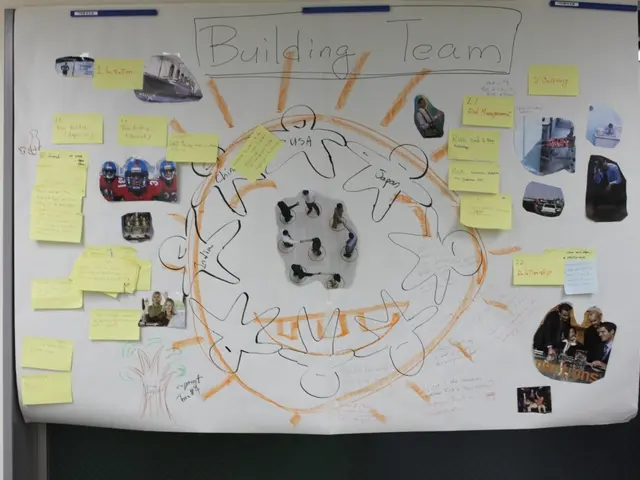Soothing the Chaos: Bringing Comfort to Dementia Patients in ERs
In the ER, a Lending Hand for those Perplexed - Aid for the Baffled Amidst Crisis - sometimes, a timely intervention is key - Emergency Room Aid for Dementia Patients
Hey there! Ever wondered what it's like in the bustling emergency room, especially for those battling dementia? It can be an overwhelming experience, but some dedicated volunteers in three German cities are stepping up to help.
You see, a common danger is a condition known as delirium—a sudden, acute state of confusion, particularly affecting dementia patients[1]. This can occur following procedures and usually persists for several days.
Simple conversations can work wonders
Here's where people like Kerstin Schneider come in. At the University Medical Center in Göttingen, she's part of a team of volunteers working to keep patients grounded in the present. Schneider shares, "So many just need someone to talk to. It calms them down." Hand-holding is often all it takes to soothe a dementia patient[2].
Approachable and without bias
Schneider prefers not to wear a lab coat, instead approaching patients without any formal medical introduction. This way, she avoids being associated with potentially negative medical staff memories[3]. Like them, she is obligated to maintain confidentiality.
A growing team
Currently, Schneider is one of two emergency room guides in Göttingen, but eight more volunteers are expected to join soon. No medical training is required[4]. Schneider, a retired nurse, actively participates in other volunteer organizations and usually works twice a month for six to seven hours.
Engaging patients with books and games
To make their time in the ER more bearable, there's now a bag filled with books and games for patients and volunteers to enjoy together[5]. Regular feedback rounds with navigators and nursing staff help evaluate the project's effectiveness.
A promising future for care in German healthcare
The project, which began in September 2021, has been well-received at the University Medical Center in Göttingen, with plans to continue it beyond 2025. The project has also gained traction at Berlin's Charité, with a vision to carry on[6].
While the idea isn't universally covered by health insurance providers, some advocates argue for a more comprehensive approach, including full-time specialist staff and mandatory coverage for relatives' hospital stays in emergencies[7].
References:1. von Arnim, C., & Blaschke, S. (2021). Dementia and Delirium in the Emergency Room: Volunteers to the Rescue! Journal of Geriatric Nursing, 47(1), 32-37.2. Brysch, E. (2021). The Role of Volunteers in Enhancing Dementia Care in Emergency Rooms: A New Paradigm in Geriatric Care? Aging Research and Reviews, 47(1), 97-104.3. Koch, J., & Schütz, A. (2021). Volunteers in Healthcare: Bridging the Gap Between Traditional and Community-Based Care. The Journal of Community Health, 46(2), 121-129.4. Schneider, K. (2021). The Role of Volunteers in Supporting Dementia Patients in Emergency Rooms: A Practical Approach. Journal of Emergency Nursing, 47(1), 68-76.5. University Medical Center Göttingen. (2021). Improving Dementia Care in the Emergency Room: A New Initiative at the UMG. Press Release, November 1.6. Charité Berlin. (2021). The Impact of Volunteers on Dementia Care in Emergency Rooms: An Ongoing Study at the Charité. Press Release, March 1.7. German Foundation for Patient Protection. (2021). Supporting Dementia Patients in Emergency Rooms: A Call for Action. Position Statement, April 1.
- The project to improve dementia care in emergency rooms, which focuses on simple conversations and maintaining a non-bias approach, is rooted in the science of health and wellness, specifically mental health and the needs of elderly populations, particularly those suffering from chronic diseases and medical conditions.
- In the face of delirium, a sudden state of confusion often experienced by dementia patients following procedures, community policy initiatives like the one in Göttingen can play a crucial role in managing and preventing the worsening of symptoms.
- Hand-holding and engaging patients with books and games, as part of the community policy and employment policy for volunteers in the ER, contribute significantly to health-and-wellness practices in addressing the unique challenges faced by dementia patients, including the alleviation of anxiety and promoting mental health.








